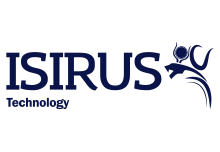Digital SPECT Imaging Solutions
Spectrum Dynamics Medical revolutionized the industry with the introduction of the
first clinical Cadmium Zinc Telluride (CZT) based nuclear cardiac imaging system
Innovations that provide the foundation for the next generation of nuclear medicine scanners.
The goal is to maximize the benefits of CZT digital detectors in routine clinical applications of nuclear medicine departments: consistently generate clinical studies of high image quality; shorten the scan times; image using the lowest possible injected activity

D-SPECT Series
CARDIOLOGY DIGITAL SPECT IMAGING
Open-gantry design for patient access and comfort. Myocardial perfusion scan as fast as two minutes. First digital SPECT camera to provide attenuation artifact correction using patient’s own SPECT data. Two key features for a compressive diagnosis: dynamic imaging for flow reserve calculation and emission-based attenuation correction for conclusive findings.

VERITON-CT Series
360˚ TOTAL BODY DIGITAL SPECT/CT IMAGING
The First ring-shaped SPECT/CT. Design enables 18-minute total body hybrid scan in 3D providing much more information than a planar scan Its 80cm bore size and diagnostic CT capabilities allow for growth in the nuclear medicine department with the technology for new types of procedures and patients.Dynamic imaging in 3D for additional diagnostic information from the moment patient is first injected.
Our Technology


Digital SPECT Scanner:
Technology and Design
Spectrum Dynamics’ unique implementation of CZT solid-state detectors has established the design as the gold standard of CZT-based SPECT cameras used in Nuclear Medicine.
CZT detectors technical advantages for SPECT imaging, when compared to traditional NaI detectors, include higher sensitivity, improved energy resolution, and increased sensitivity. CZT is a semi-conductor and via direct conversion of gamma radiation to an electric signal allows for significantly higher count rate when compared to NaI with Anger-based technology. CZT eliminates the need for photomultiplier tubes.
Our Unique Approach to address SPECT Imaging Challenges
Our Unique Approach to address SPECT Imaging Challenges

DESIGN
360° ring-shaped gantry design, 80cm bore
SOLID STATE TECHNOLOGY
Sensitiviy, Energy Resolution
CONFIGURATION
Swiveling, high resolution CZT,
12 detectors
PROXIMITY
Adaptive body contouring by each detector
Image Generation
Software and Hardware Enabled Possibilities
TruCorr Adresses the Challenges Created by Attenuation Artifacts
TruCorr is a revolutionary approach that uses Deep Learning to generate attenuation corrected myocardial perfusion images. This new capability for the D-SPECT Cardiac Digital SPECT improves image quality and integrates seamlessly with the existing Myocardial Perfusion Imaging (MPI) existing workflow.

TruSPECT Workstation Integration: Apply TruCorr and generate attenuation corrected images by using the workflow integrated in the D-SPECT Workstation.



Patient compliance: The open gantry design and the ability of the CZT columns to “swivel” back and forth allow the nine detectors, in an L-shaped array, to acquire data from the patient’s Left Posterior Oblique (LPO) to Right
Anterior Oblique (RAO) without the need to rotate the detectors around the patient.
This eliminates the chance of an acquisition collision, pinch points or claustrophobia that moving detectors can cause.
Dose reduction: The extremely high sensitivity of the D-SPECT detectors allows for dramatic reductions in injected dose.
Patients and staff benefit from the lower radiation dose.
Nuclear cardiology in the 21st century 180°
Easy-to-access results: Review images using your preferred cardiac analysis software, such as 4DM or Cedars
In the 21st century, most nuclear cameras are still relying on a technology invented in the 1950s (crystals and vacuum tubes). Spectrum Dynamics Medical revolutionized the industry in 2006 with the introduction of the first clinical Cadmium Zinc Telluride (CZT) based nuclear cardiac imaging system—the D-SPECT®—and now the next generation D-SPECT CARDIO and D-SPECT VISTA.
Clinical Care by D-SPECT Cardiology Digital SPECT Imaging


Clinical Care by VERITON-CT 360° CZT Digital SPECT/CT Imaging

Total Body Bone SPECT/CT 3min per Bed Position

MIM SurePlan MRT provides timesaving tools for organ and tumor segmentation, deformable registration, and voxel-based dosimetry for Molecular Radiotherapy.

The next generation of nuclear medicine scanners.
scanning with 360° CZT design, which improves sensitivity to a point that the system can truly affect change.

